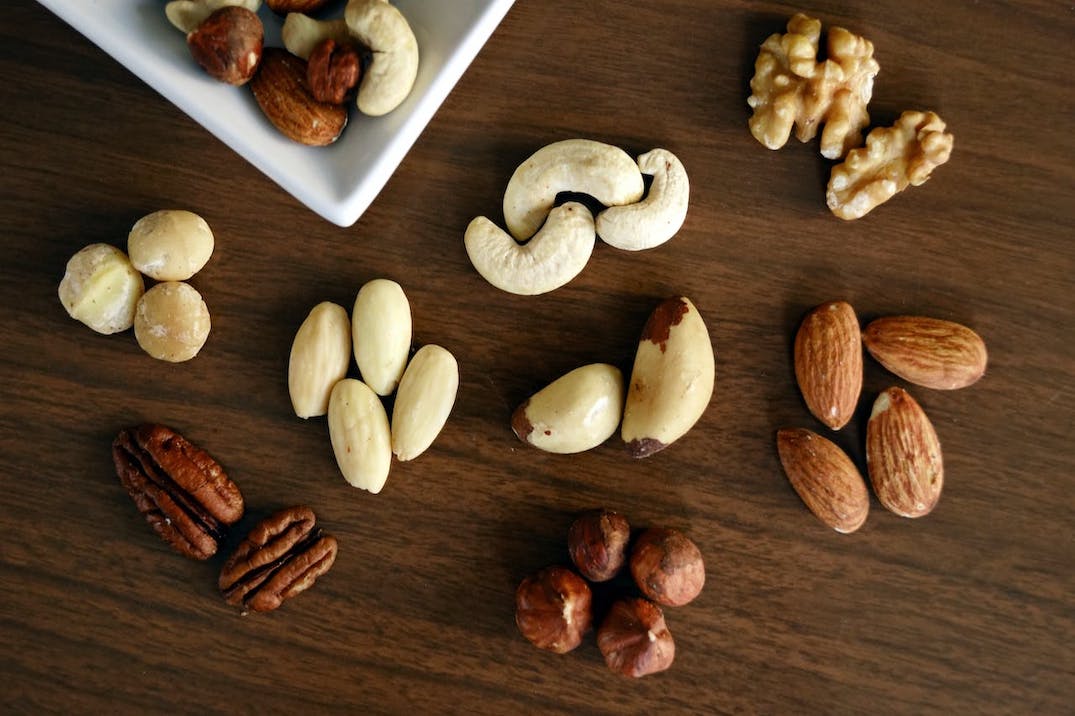Does Mirtazapine Cause Weight Gain? How to Lose Weight or Not Gain Weight
If you’ve been prescribed Mirtazapine, you may have heard that it has the potential to cause weight gain. Mirtazapine is a type of antidepressant medication commonly used to treat Major Depressive Disorder, anxiety, and other mental health conditions.
As with many antidepressant medications, weight gain is a common side effect of taking Mirtazapine. While it’s not well understood why this occurs, it’s theorized that it results from an increase in appetite caused by this medication.
Luckily, there are things you can do to lose weight or avoid gaining weight while taking Mirtazapine, including consuming a balanced diet rich in satiating foods and maintaining a regular exercise routine.
This guide explains why Mirtazapine often causes weight gain and how to stop it.
Why does Mirtazapine cause weight gain?
It’s common for antidepressant medications to cause weight gain due to their effects on serotonin levels which may increase cravings and appetite. However, those taking Mirtazapine may be particularly at risk.
One study found that those prescribed antidepressant medications for mental health disorders were 20% more likely to experience weight gain, and those taking Mirtazapine experienced higher amounts of weight gain.
Why Mirtazapine causes weight gain is not well understood, but many theorize that it is due to an increase in appetite. Mirtazapine is often prescribed off-label as an appetite stimulant to aid in weight gain for certain populations.
A hearty appetite can stimulate over-eating, quickly increasing weight.
Aside from an increase in appetite, Mirtazapine may also result in hormonal fluctuations that can lead to an increase in food cravings, particularly highly processed foods, refined carbohydrates, and foods high in sugar, all of which can contribute to weight gain.

Find a dietitian covered by insurance
90% of Zaya Care patients pay $0 for dietitian visits
How long does it take Mirtazapine to increase appetite & cause weight gain?
The effects of Mirtazapine on appetite are said to begin immediately and those who take this medication, both short and long-term, will experience these effects. However, weight gain while taking Mirtazapine may be strongest during the first one to three months.
According to a meta-analysis of four studies conducted on Mirtazapine, participants who took this medication experienced the majority of their weight gain within the first month of use, suggesting that appetite stimulation occurs right away.
Another study found that most of the self-reported weight gain occurred within the first three months for those taking Mirtazapine for long-term use. Weight gain did continue after the initial three months but appeared to slow down.
What is the average weight gain on Mirtazapine?
The amount of weight gained while taking Mirtazapine will vary by individual and depend on a variety of factors including the dosage and duration of the medication, and the individual’s lifestyle choices.
Studies on the rate of weight loss while taking Mirtazapine show varying results.
According to the Journal of Clinical Psychiatry, an average weight gain of 4.4 lbs after six weeks of treatment has been reported with Mirtazapine.
One study conducted on 362 patients taking antidepressant drugs, including Mirtazapine, for 6 to 36 months found that 55% experienced weight gain with over 40% of patients having weight gain of 7% or more of their body weight.
How can I lose weight or not gain weight on Mirtazapine?
You don’t have to sacrifice your weight to improve your mental health. Below are some tips on ways to help you lose weight or avoid gaining weight while taking Mirtazapine:
- Choose a higher protein diet. Protein is one of the most satiating nutrients. Consuming a high-protein diet can aid in meal satisfaction and increase fullness, leading to less snacking and smaller portions.
- Incorporate satiating foods. Aside from protein, consuming more foods that contain fiber or healthy fats such as fruits, vegetables, nuts, olive oil, and avocados can slow down gastric emptying, keeping you feeling full for longer, and aid in appetite regulation.
- Avoid or limit highly processed and sugary foods. Mirtazapine can increase cravings for high-carb, processed food items which are known to cause weight gain.
- Track your food and liquid intake. Keep track of how much you are consuming by using an app or paper log to note your intake of both foods and liquids. This can keep you accountable and make you aware of any changes that occur in your diet.
- Stay hydrated. Adequate water intake can aid in weight loss as well as help you maintain a healthy weight. Adequate hydration improves appetite control and reduces unnecessary snacking.
- Consider meal prepping. Meal prepping with a focus on weight loss can help you stay on top of your diet when it comes to both the quantity and quality of foods you are choosing. Meal prepping also encourages consuming home-cooked meals versus processed foods or foods out.
- Keep healthy snacks on hand. Because your appetite will be increased on Mirtazapine, keeping healthy snacks that contain protein, fat, and/or fiber can be beneficial to avoid over-eating processed snacks. Try snacks like nuts that can help with weight loss.
- Get plenty of sleep. Chronic sleep deprivation can increase snacking behaviors and rev up appetite. This combined with the effects of Mirtazapine can worsen weight gain. Aim for seven to nine hours of high-quality sleep every night as possible.
- Keep your body moving. A regular exercise routine can help to support a healthy weight, reduce weight gain, and improve mental health.
- Work with a dietitian. If you continue to struggle with your weight while taking Mirtazapine, consider working with a nutrition professional. A nutritionist or dietitian can help you lose weight by creating a plan that works for you.
How working with a dietitian while taking Mirtazapine can help you avoid weight gain
Losing weight is hard but when you incorporate a medication, such as Mirtazapine, which can increase your appetite, it can feel overwhelming trying to get control back. Don’t be afraid to ask for help if you are struggling to lose weight or fearful of gaining weight on Mirtazapine.
Working with a Registered Dietitian (RD) can allow you to develop the skills you need to manage both your mental and physical health during this time. RDs are nutrition professionals who can guide you and support you in improving your diet and lifestyle in a variety of ways.
RDs can teach you to manage both the short and long-term effects of antidepressant medications such as Mirtazapine, guide you to overcome barriers, and provide individualized recommendations to steer you toward success.
If you’ve never worked with an RD before, now is a good time to consider getting additional support. It may seem easy on the outside, but once you start feeling the effects of this medication, it can be frustrating to manage on your own. Don’t wait until it’s too late.
When you request an appointment with one of our Registered Dietitians here at Zaya Care, we’ll check your insurance so you know exactly how much you’ll have to pay, if anything at all.
It’s worth noting that 90% of Zaya Care patients pay $0 for nutrition care with a registered dietitian.

Find a dietitian covered by insurance
90% of Zaya Care patients pay $0 for dietitian visits
FAQs about weight gain & Mirtazapine
Does 7.5mg of Mirtazapine cause weight gain?
Even low doses of Mirtazapine, such as 7.5mg, are associated with weight gain. However, higher doses are associated with higher rates of weight gain.
Does 15mg of Mirtazapine cause weight gain?
As mentioned above, higher doses of Mirtazapine are more likely to result in higher rates of weight gain. Both 7.5mg and 15mg will likely cause weight gain as a common side effect however, those taking 15mg may notice more significant weight gain depending on how long you take the medication.
How long does it take for Mirtazapine to increase appetite?
An increase in appetite while taking Mirtazapine can be expected within the first few doses. One study found that most experienced appetite stimulation within the first four days of taking Mirtazapine with the most significant change noted after the first two days of use.
How long does it take to gain weight on Mirtazapine?
Most studies conducted on weight gain while taking Mirtazapine suggest that the majority of weight gain occurs within the first couple of months of taking it. One meta-analysis of four studies found that participants who took Mirtazapine experienced the majority of their weight gain within the first month while another study found that the majority of self-reported weight gain occurred within the first three months of taking this medication.
How can I avoid gaining weight on Mirtazapine?
The best way to avoid weight gain while taking Mirtazapine is to incorporate a balanced diet rich in satiating nutrients such as protein, healthy fats, and fiber with low amounts of processed foods, regular physical activity, and a healthy sleep routine.
What is the average weight gain on Mirtazapine?
According to one study, an average weight gain of 2 kg (4.4lbs) after six weeks of treatment has been reported with Mirtazapine.
Are there antidepressants that don’t cause weight gain?
While weight gain is a common side effect of many antidepressant medications, some are less likely to cause weight gain including Prozac (fluoxetine) and Wellbutrin (bupropion).

Find a dietitian covered by insurance
90% of Zaya Care patients pay $0 for dietitian visits
If you’ve been prescribed Mirtazapine, you may have heard that it has the potential to cause weight gain. Mirtazapine is a type of antidepressant medication commonly used to treat Major Depressive Disorder, anxiety, and other mental health conditions.
As with many antidepressant medications, weight gain is a common side effect of taking Mirtazapine. While it’s not well understood why this occurs, it’s theorized that it results from an increase in appetite caused by this medication.
Luckily, there are things you can do to lose weight or avoid gaining weight while taking Mirtazapine, including consuming a balanced diet rich in satiating foods and maintaining a regular exercise routine.
This guide explains why Mirtazapine often causes weight gain and how to stop it.
Why does Mirtazapine cause weight gain?
It’s common for antidepressant medications to cause weight gain due to their effects on serotonin levels which may increase cravings and appetite. However, those taking Mirtazapine may be particularly at risk.
One study found that those prescribed antidepressant medications for mental health disorders were 20% more likely to experience weight gain, and those taking Mirtazapine experienced higher amounts of weight gain.
Why Mirtazapine causes weight gain is not well understood, but many theorize that it is due to an increase in appetite. Mirtazapine is often prescribed off-label as an appetite stimulant to aid in weight gain for certain populations.
A hearty appetite can stimulate over-eating, quickly increasing weight.
Aside from an increase in appetite, Mirtazapine may also result in hormonal fluctuations that can lead to an increase in food cravings, particularly highly processed foods, refined carbohydrates, and foods high in sugar, all of which can contribute to weight gain.

Find a dietitian covered by insurance
90% of Zaya Care patients pay $0 for dietitian visits
How long does it take Mirtazapine to increase appetite & cause weight gain?
The effects of Mirtazapine on appetite are said to begin immediately and those who take this medication, both short and long-term, will experience these effects. However, weight gain while taking Mirtazapine may be strongest during the first one to three months.
According to a meta-analysis of four studies conducted on Mirtazapine, participants who took this medication experienced the majority of their weight gain within the first month of use, suggesting that appetite stimulation occurs right away.
Another study found that most of the self-reported weight gain occurred within the first three months for those taking Mirtazapine for long-term use. Weight gain did continue after the initial three months but appeared to slow down.
What is the average weight gain on Mirtazapine?
The amount of weight gained while taking Mirtazapine will vary by individual and depend on a variety of factors including the dosage and duration of the medication, and the individual’s lifestyle choices.
Studies on the rate of weight loss while taking Mirtazapine show varying results.
According to the Journal of Clinical Psychiatry, an average weight gain of 4.4 lbs after six weeks of treatment has been reported with Mirtazapine.
One study conducted on 362 patients taking antidepressant drugs, including Mirtazapine, for 6 to 36 months found that 55% experienced weight gain with over 40% of patients having weight gain of 7% or more of their body weight.
How can I lose weight or not gain weight on Mirtazapine?
You don’t have to sacrifice your weight to improve your mental health. Below are some tips on ways to help you lose weight or avoid gaining weight while taking Mirtazapine:
- Choose a higher protein diet. Protein is one of the most satiating nutrients. Consuming a high-protein diet can aid in meal satisfaction and increase fullness, leading to less snacking and smaller portions.
- Incorporate satiating foods. Aside from protein, consuming more foods that contain fiber or healthy fats such as fruits, vegetables, nuts, olive oil, and avocados can slow down gastric emptying, keeping you feeling full for longer, and aid in appetite regulation.
- Avoid or limit highly processed and sugary foods. Mirtazapine can increase cravings for high-carb, processed food items which are known to cause weight gain.
- Track your food and liquid intake. Keep track of how much you are consuming by using an app or paper log to note your intake of both foods and liquids. This can keep you accountable and make you aware of any changes that occur in your diet.
- Stay hydrated. Adequate water intake can aid in weight loss as well as help you maintain a healthy weight. Adequate hydration improves appetite control and reduces unnecessary snacking.
- Consider meal prepping. Meal prepping with a focus on weight loss can help you stay on top of your diet when it comes to both the quantity and quality of foods you are choosing. Meal prepping also encourages consuming home-cooked meals versus processed foods or foods out.
- Keep healthy snacks on hand. Because your appetite will be increased on Mirtazapine, keeping healthy snacks that contain protein, fat, and/or fiber can be beneficial to avoid over-eating processed snacks. Try snacks like nuts that can help with weight loss.
- Get plenty of sleep. Chronic sleep deprivation can increase snacking behaviors and rev up appetite. This combined with the effects of Mirtazapine can worsen weight gain. Aim for seven to nine hours of high-quality sleep every night as possible.
- Keep your body moving. A regular exercise routine can help to support a healthy weight, reduce weight gain, and improve mental health.
- Work with a dietitian. If you continue to struggle with your weight while taking Mirtazapine, consider working with a nutrition professional. A nutritionist or dietitian can help you lose weight by creating a plan that works for you.
How working with a dietitian while taking Mirtazapine can help you avoid weight gain
Losing weight is hard but when you incorporate a medication, such as Mirtazapine, which can increase your appetite, it can feel overwhelming trying to get control back. Don’t be afraid to ask for help if you are struggling to lose weight or fearful of gaining weight on Mirtazapine.
Working with a Registered Dietitian (RD) can allow you to develop the skills you need to manage both your mental and physical health during this time. RDs are nutrition professionals who can guide you and support you in improving your diet and lifestyle in a variety of ways.
RDs can teach you to manage both the short and long-term effects of antidepressant medications such as Mirtazapine, guide you to overcome barriers, and provide individualized recommendations to steer you toward success.
If you’ve never worked with an RD before, now is a good time to consider getting additional support. It may seem easy on the outside, but once you start feeling the effects of this medication, it can be frustrating to manage on your own. Don’t wait until it’s too late.
When you request an appointment with one of our Registered Dietitians here at Zaya Care, we’ll check your insurance so you know exactly how much you’ll have to pay, if anything at all.
It’s worth noting that 90% of Zaya Care patients pay $0 for nutrition care with a registered dietitian.

Find a dietitian covered by insurance
90% of Zaya Care patients pay $0 for dietitian visits
FAQs about weight gain & Mirtazapine
Does 7.5mg of Mirtazapine cause weight gain?
Even low doses of Mirtazapine, such as 7.5mg, are associated with weight gain. However, higher doses are associated with higher rates of weight gain.
Does 15mg of Mirtazapine cause weight gain?
As mentioned above, higher doses of Mirtazapine are more likely to result in higher rates of weight gain. Both 7.5mg and 15mg will likely cause weight gain as a common side effect however, those taking 15mg may notice more significant weight gain depending on how long you take the medication.
How long does it take for Mirtazapine to increase appetite?
An increase in appetite while taking Mirtazapine can be expected within the first few doses. One study found that most experienced appetite stimulation within the first four days of taking Mirtazapine with the most significant change noted after the first two days of use.
How long does it take to gain weight on Mirtazapine?
Most studies conducted on weight gain while taking Mirtazapine suggest that the majority of weight gain occurs within the first couple of months of taking it. One meta-analysis of four studies found that participants who took Mirtazapine experienced the majority of their weight gain within the first month while another study found that the majority of self-reported weight gain occurred within the first three months of taking this medication.
How can I avoid gaining weight on Mirtazapine?
The best way to avoid weight gain while taking Mirtazapine is to incorporate a balanced diet rich in satiating nutrients such as protein, healthy fats, and fiber with low amounts of processed foods, regular physical activity, and a healthy sleep routine.
What is the average weight gain on Mirtazapine?
According to one study, an average weight gain of 2 kg (4.4lbs) after six weeks of treatment has been reported with Mirtazapine.
Are there antidepressants that don’t cause weight gain?
While weight gain is a common side effect of many antidepressant medications, some are less likely to cause weight gain including Prozac (fluoxetine) and Wellbutrin (bupropion).

Find a dietitian covered by insurance
90% of Zaya Care patients pay $0 for dietitian visits
















